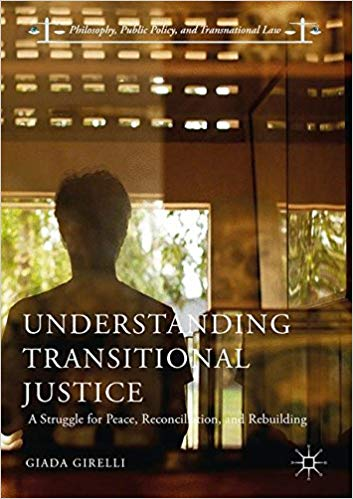
The book is an accurate and accessible introduction to the complex and dynamic field of transitional and post-conflict justice, providing an overview of its recurring concepts and debated issues. Particular attention is reserved to how these concepts and issues have been addressed, both theoretically and literally, by lawyers, policy-makers, international bodies, and other actors informing the practice. By presenting significant, if undeniably disputable, alternatives to mainstream theories and past methods of addressing past injustice and (re)building a democratic state, the work aims to illustrate some foundational themes of transitional justice that have emerged from a diverse set of discussions. The author's position thus arrives from a careful analysis of the advantages and disadvantages of answers to the question: how, after a traumatic social experience, is justice restored?